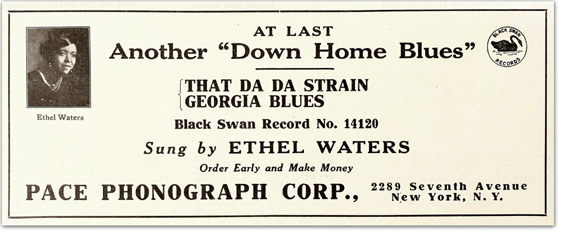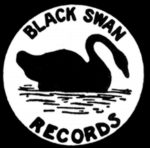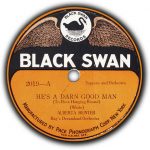 Before the Dipset crew took over Harlem, Black Swan Records was an American jazz and blues record label founded in 1921 in Harlem, New York. It was the first widely distributed label to be owned, operated, and marketed to African Americans. (Broome Special Phonograph Records was the first to be owned and operated by African Americans). Black Swan was revived in the 1990s for CD reissues of historic jazz and blues recordings.
Before the Dipset crew took over Harlem, Black Swan Records was an American jazz and blues record label founded in 1921 in Harlem, New York. It was the first widely distributed label to be owned, operated, and marketed to African Americans. (Broome Special Phonograph Records was the first to be owned and operated by African Americans). Black Swan was revived in the 1990s for CD reissues of historic jazz and blues recordings.
 Black Swan’s parent company, Pace Phonograph Corporation, was founded in March 1921 by Harry Pace (right) and was based at 2289 Seventh Avenue in Harlem, NY. The new production company was formed after Pace’s music publishing partnership with W. C. Handy, Pace & Handy, had dissolved.
Black Swan’s parent company, Pace Phonograph Corporation, was founded in March 1921 by Harry Pace (right) and was based at 2289 Seventh Avenue in Harlem, NY. The new production company was formed after Pace’s music publishing partnership with W. C. Handy, Pace & Handy, had dissolved.
Bert Williams was an early investor in Pace Phonograph. Williams also promised to record for the company once his exclusive contract with Columbia Records ended, but he died before that could occur.
 Pace Phonograph Corporation was renamed Black Swan Phonograph Company in the fall of 1922. Both the record label and production company were named after 19th-century opera star Elizabeth Greenfield, who was known as the Black Swan.
Pace Phonograph Corporation was renamed Black Swan Phonograph Company in the fall of 1922. Both the record label and production company were named after 19th-century opera star Elizabeth Greenfield, who was known as the Black Swan.
Former employees of Pace & Handy staffed the new company: Fletcher Henderson, the recording manager, provided piano accompaniment for singers and led a small band for recording sessions. William Grant Still was named arranger and later musical director. Noted author, activist, and academic W. E. B. Du Bois was a stockholder and member of the Board of Directors of Black Swan. Ads for Black Swan often ran in The Crisis, the magazine of the National Association for the Advancement of Colored People, which Du Bois edited.
Black Swan proved moderately successful. It recorded African American musicians, but

as the label grew in popularity, Pace believed competing white-owned labels such as Columbia Records sought to “obstruct the progress and curtail the popularity of Black Swan Records”. Although advertising for Black Swan Records claimed all its musicians and employees were African American, it sometimes used white musicians to back some of its singers.
The production company declared bankruptcy in December 1923, and in March 1924

Paramount Records bought the Black Swan label. The Chicago Defender reported the event by noting important accomplishments of Black Swan in a short career span, including: pointed out—to the major, all white-owned, record companies—the significant market demand for black artists; prompted several major companies to begin publishing music by these performers. In addition, the Defender credited Pace with showing the majors how to target black audiences and to advertise in black newspapers. Paramount discontinued the Black Swan label a short time later.
The Black Swan label was revived in the 1990s for a series of CD reissues of historic jazz and blues recordings originally issued on Black Swan and Paramount. These CDs were issued by George H. Buck’s Jazzology and GHB labels under the control of the George H. Buck Jr. Jazz Foundation, which gained rights to the Paramount back-catalogue but not the Paramount name. Rights to the name “Black Swan Records” were also transferred to GHB.
Photo credit: 1) Black Swan’s first hit: “Down Home Blues” (here advertised in August 1921) brought national attention to Ethel Water and Black Swan. Pace plugged many of Waters’ subsequent releases as “Another ‘Down Home Blues’” (the example above is from late 1922), but none approached the popularity of the original. 2) Harry Pace. 3) Black Swann Records logo. 40 OLYMPUS DIGITAL CAMERA. Via Source.
Become a Harlem Insider!
By submitting this form, you are consenting to receive marketing emails from: . You can revoke your consent to receive emails at any time by using the SafeUnsubscribe® link, found at the bottom of every email. Emails are serviced by Constant Contact








